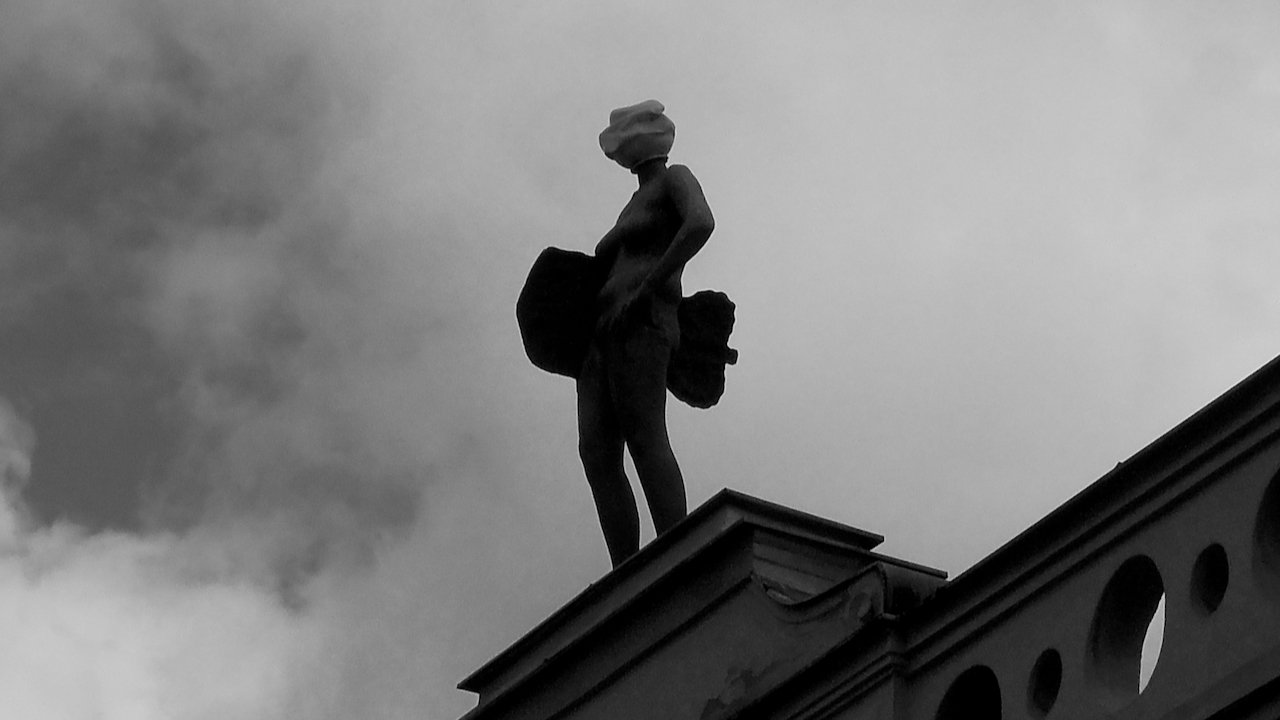Black Coffee
Black coffee writing and the momentum of your past choices.
New York 2020
In one peculiar result of World War II, I drink black coffee. Admittedly, of all the tectonic shifts from that war, this minuscule note is a bit trivial, and it also stretches the nature of causality to its limit. But it’s the only story I can tell about my preference. To describe the scene in detail necessitates that I freshen up a hazy memory, though I am able to narrow the timeline to that elusive age of above five and below ten, while also placing the scene at a family dinner table, where the curiosity of hearing an adult conversation competes—for one of the first times—against the thrill of some nearby toy.
Now it’s already too late to set the table for you, because dinner has ended. All the plates have been taken away, but here we sit, just talking, with the chairs now turned, twisted, and bunched, in the traditional post-dinner muddle. Perhaps there are a few desserts on the table, too, though I don’t see them, so that means you shouldn’t either.
To my young ear, the conversation is fast, a little disjointed, but with an occasional soliloquy. And I can just about grasp the notion of what’s described as a political discussion. A few words from that evening have even stayed with me through the decades, and, as I recall those specific sentences now, I can finally understand them. The phrase l’esprit de l’escalier is useful here; it means staircase wit, or staircase mind, though it’s rather oddly known better in English than French. To understand the phrase, imagine yourself at a cocktail party, someone insults you, but you fail to reply. Later, as you descend the staircase to leave, still feeling wounded by those words, you have an epiphany: the perfect retort for that moment! That’s l’esprit de l’escalier, the sensation of that much too late reply, a phrase that reaches through the decades to me right now, as I believe I have a reply for one of my grandfather’s political statements.
What I did manage to question at that age, however, came from watching all the nuances and quirks of how coffee was poured during this political conversation. With dinner over, and coffee brewed, I observed the chaotic, seemingly haphazard choices of those around the table: with sugar and without sugar, or with one, two, and three splashes of milk. Every cup was different, and only one, I noticed, lacked any of these accoutrements, and that was my grandfather’s, as the liquid in his cup remained as black as the shades which surround this memory.
By asking him I learned that he once enjoyed a dash of milk in his coffee, too, but that he had grown away from the habit. While overseas during World War II, milk wasn’t available, so he became accustomed to drinking his coffee black. That’s not an unusual preference, though it seemed so at the time, as I could only compare it to all the fussing and pouring and stirring of the other cups. My grandfather offered me a sip and, just before the curtain closes on this memory, I can see his smile as he watched me drink.
In a perfectly reasonable fashion that first taste eventually became my own preference when I started to drink coffee many years later. Where you prefer to assign causality might be tighter in scope—maybe not the war, maybe not some nameless general who long ago limited milk rations, maybe not even the dinner table conversation. But what intrigues me most is the momentum behind this cascade of decisions. There’s a spiraling, a restricting of choices, where one decision begets the next, again and again, until decades have passed, and what might be considered the root cause of some decision is long forgotten. Perhaps the difficulty comes from uncovering the momentum behind some choice that you make today: underneath all the options before you is a hidden world of obscured links to your past choices.
Most people have an intuitive sense for this dynamic, especially when it triggers a downward spiral. Momentum, seen this way, has the appearance of perpetual acceleration—a faster plunge, the worsening slump, an even greater collapse. A pithy George Orwell line describes this dynamic well: “A man may take to drink because he feels himself to be a failure, and then fail all the more completely because he drinks.” This momentum of poor choices, misfortune, and failure is clear to anyone with open eyes, yet the reverse is also true, as an uphill climb can feel like a downhill journey when success mounts upon success: a professional victory brings you even more opportunities, or a personal triumph may steer you toward a new introduction and another triumph. Finding yourself on the right side of this momentum, where success feeds success, just might compensate for those times when the equation is tipped against you, and the options become narrower, the choices poorer.
One easy conclusion is that it’s quite difficult to remain motionless. You’re either on an upward or downward staircase, and the momentum of your journey is always accelerating. A habit can be difficult to spot, even though its grooves deepen over time. Today, I brewed my coffee just before sunrise, indirectly following the momentum of choices made long before my birth, struck by how far into the past a choice can reach.




